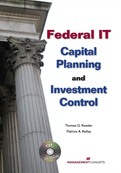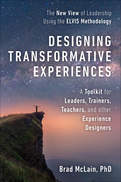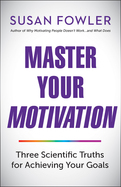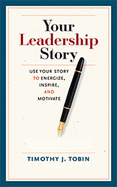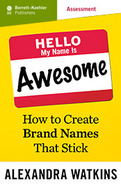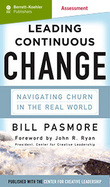Federal IT Capital Planning and Investment Control is the first book to provide a comprehensive look at the IT capital planning and investment control (CPIC) process. Written from a practitioner's perspective, this book covers a range of topics designed to provide both strategic and operational perspectives on IT CPIC. From planning to evaluation, this valuable resource helps managers and analysts at all levels realize the full benefits of the CPIC process.
•Explore the full range of IT investment principles and practices
•Learn CPIC project management techniques including earned-value management, integrated baseline review, cost-benefit analysis, and risk-adjusted cost and schedule estimates
•Identify strategies to improve how your organization manages its IT portfolio and selects, controls, and evaluates investments
•Discover how to leverage scarce IT resources and align investments with program priorities
•Benefit from the in-depth coverage—excellent for the experienced as well as those new to the CPIC process
Transformative experiences are life events that change our sense of self in important ways. How do they work? What elements do they require? How can we learn to design them intentionally?
By embracing the research-based approach of ELVIS (the Experiential Learning Variables and Indicators System), this book details how to recast yourself as an Experience Design Leader, one that can provide those in your organization with the opportunities needed to reflect and grow as individuals.
Beginning with the ELVIS Framework, you will gain deep foundational insight into how transformative experiences work. And then with the ELVIS Toolkit, which includes seven practical design elements, you will have the key to unlocking these powerful experiences for yourself and others.
Whether you are new to the idea of designing experiences for others or are a seasoned veteran, ELVIS shows you how to tap into the psychology operating behind the most powerful and important experiences of our lives-those that shape who we are.
Motivation is at the heart of everything you do and everything you want to do but don't. Unfortunately, the ways we typically motivate ourselves don't work. Relying on sheer determination eventually becomes exhausting—it's not sustainable. And even setting goals can backfire—if you're not setting them for the right reasons.
Susan Fowler says motivation is energy, and what matters is the quality, not the quantity. Traditional “motivators” such as fear, guilt, or the promise of a reward provide low-quality, short-term energy. Drawing on the latest empirical research, she proves that high-quality, optimal motivation is a skill that you can learn and apply.
Science tells us that satisfying three basic needs—for choice, connection, and competence—is essential to optimal motivation. You need to feel like you've picked your path, not that you're being driven down it. Your goal should be linked to people or a purpose meaningful to you. And you want to continually learn and grow.
Through practical exercises and eye-opening stories, Fowler shows you how to identify and shift the quality of your motivation. The skill to master your motivation is important—it may be your greatest opportunity to evolve, grow in wisdom, and be the light the world so desperately needs.
Using story as both a metaphor and a process for self-development, Tobin offers activities and questions that help you better understand your own leadership and how others perceive it. What is the plot of your leadership story—your overall goals and purpose? Who are the main characters and what roles do they play? How have the settings of your story influenced it? What are the conflicts that you need to resolve to move toward the ending you intend?
But you have to share your story to make it an effective leadership tool. Tobin gives detailed advice on framing your message, finding ways to communicate it, and understanding the role others play in furthering that message.
If you don't tell your leadership story, other people will—and it may not be the story you want told. Taking control of your leadership story enables you to more consciously shape the impact you have in the world. You'll be better equipped to make decisions, choose actions that tell the story you want to tell, make stronger connections to those you lead, and ensure that you become the kind of leader you want to be.
While it's tempting to ask your friends, family and co-workers what they think of your new name, it puts you in danger of making a bad decision based on subjective opinions rather than objective criteria, such as your name being meaningful to customers, and easy to spell and pronounce.
That's why ace naming consultant Alexandra Watkins has created an insightful & unbiased assessment you can apply to your company or product name. You need a strong brand name that suggests what your brand does, makes a strong emotional connection, and stands out in a sea of sameness. This test has 30 objective questions that will help you decide whether to move forward with your name, or go back to the drawing board.
This assessment is a companion product to Alexandra's engaging new book, Hello My Name is Awesome. Purchase a week-long subscription to this assessment for $19.95; or purchase a year-long subscription for $49.95. You'll get incredibly detailed and personalized results that explain exactly what is wrong- and right- with your name.
Whether you want the confidence to move forward with a potential brand name or need to get a professional opinion to show your boss that his or her name idea isn't really that good, this professional assessment and official report will tell you the truth about your name, revealing the strengths, trouble spots and deal breakers you may not see at first glance.
PURCHASER AND USER NOTE: If you are an individual consumer newly purchasing the assessment, go directly to the shopping cart by clicking the "add to cart" icon to your left. If you are a member of an organization that has purchased a bulk order, or if you already bought the assessment in the last 12 months and are retaking it now using the original Access Key to retake the assessment please log in here. New registrants: Please enter your "Access Key" into the input field to enter the self-assessment for the first time. A note to frequent purchasers: You cannot use your current bkconnection.com password for this product; you must create and use a new password. For any questions, please contact the support desk at 800-929-2929 (8 am-9 pm Eastern U.S. time, Monday through Friday), or [email protected]. Thank you.
Format: Online Subscription (one year, or five tests, whichever comes first)
Description: This 24-question instrument is intended to help you understand your strengths and weaknesses in leading complex change. The online product uses four points of measurement: Discerning, Discovering, Deciding, and Doing. Your score is provided on a radar graph. Numerical scores for each of the four metrics are also provided with interpretation from the author. You may print the results of each test. You can also review previous tests and compare your progress throughout the year. Alternatively, you can take the instrument once, then let four colleagues take the other four tests as part of the 12-month subscription, and then compare each others' scores.
Author's Welcome
Today, changes don’t come at us one at a time or during quiet periods when we have little else to manage. Instead, we are bombarded by multiple changes simultaneously, often stretching the limits of our resources and attention. As we try to respond to these overlapping, never-ending changes, the data suggest that we fail more often than we succeed; in fact, we only feel that we meet our change objectives about 30% of the time. Can we do better? Yes, but we need to take a radically different approach to leading continuous change. This short survey will help you identify your current beliefs and behaviors regarding leading complex change. When you compare your results to what you will learn as you read Leading Continuous Change you will be armed with important knowledge about aspects of your leadership you may wish to strengthen or adjust.
If you are a student of adult development, you may have studied David Kolb’s theory that asserts that adults learn and change when they have an actual experience, reflect on that experience, formulate a theory that explains what happened and how to improve, and finally engage in active experimentation to test their new knowledge. The best way for you to use this assessment is to reflect on your own actual experiences with complex change, take the survey, reflect on the results and then plan actions that you can take to improve. We can all get better at leading complex change; none of us can say that we have mastered it yet.
You’ll find instructions below on how to complete the instrument. Once you do, you’ll get a report that summarizes your results, assesses your strengths and weaknesses and recommends some steps you can take.
You may be the kind of person who feels there is little to be gained from taking this kind of assessment. You may be action-oriented and prefer “learning on the job” and figuring things out for yourself. That’s ok if your world allows you the time and grace to make mistakes. However, we should be wary of the stories that we tell ourselves: that things are going well, that everything is under control, that we’ve got it covered, that everyone loves us and thinks we’re doing a great job, and while we may not be perfect, we’re plenty good enough. The fact is that leading complex change is a tough job and we should accept whatever help we can get. Hopefully, if you take this assessment, you’ll learn important things that can help you be the most effective leader of complex change that you can be.
Since you can have up to four others take this assessment, it would be a good idea to have a few other people in your organization take it and compare results. You will find that some of your peers approach change differently. Discussing those differences and agreeing on how you want to do things going forward should prove a valuable exercise.
Congratulations on taking this next step on improving your success at leading complex, continuous change!
Bill Pasmore


